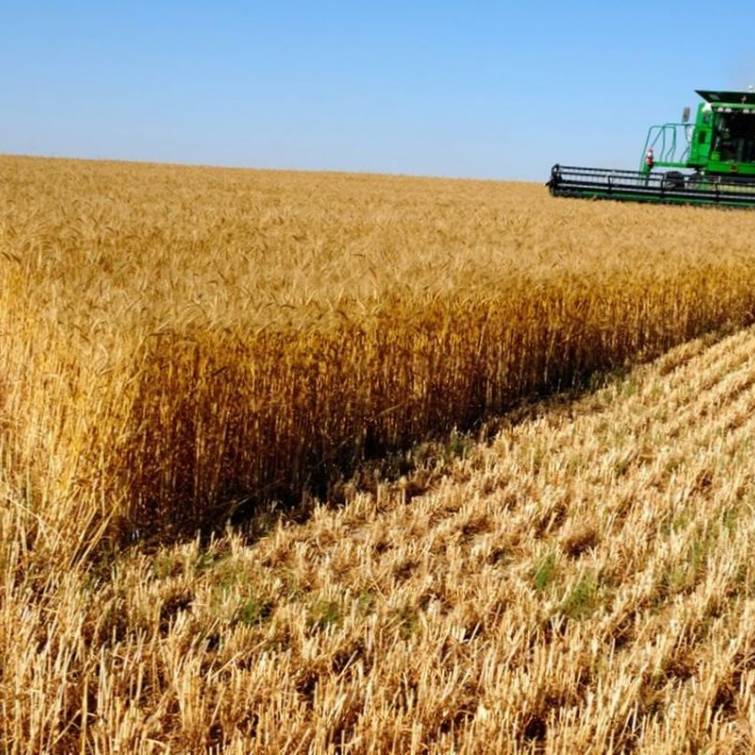The grain corridor can switch from a sea route to a river route

Ukraine has developed an alternative plan for continuing the export of agricultural products in case the work of the grain corridor stops due to sabotage by the Russian side.
As the First Deputy Minister of Agrarian Policy and Food Taras Vysotskyi said, this plan "B" provides for the expansion of the carrying capacity of the ports of the Danube region, as well as the increase of grain transshipment there. Taras Vysotsky added that work is currently underway to put dry ports and new crossing points on the border with Romania and Poland into operation.
The Ministry of Agrarian Policy admitted that there were difficulties with the export of agricultural products, but in financial terms, Ukraine's results should be close to last year's. It should be noted that in the Mykolaiv and Odesa regions, agricultural producers are already harvesting this season. A total of 12.75 million hectares of oil, leguminous and grain crops were sown. At the same time, Ukrainian farmers are unable to use about 7 million hectares of land due to hostilities and landmines.
It should be noted that, in general, Ukraine wants to expand the transit of agricultural products through Moldova and Romania. As reported by the Ministry of Agrarian Policy and Food of Ukraine, the head of the Ministry, Mykola Solskyi, and his Moldovan colleague, Volodymyr Bolya, have already discussed the current state of affairs in negotiations on reducing the tariff for railway transportation of Ukrainian agricultural products through Moldova. The Moldovan side noted that it has finished formulating new tariffs for the transportation of Ukrainian agricultural products. There, a mechanism was introduced, which provides for the adjustment of tariffs in the event of an increase in the volume of transportation. Now the Ukrainian side must study the proposed tariffs and provide an answer. In turn, Mykola Solsky noted that they plan to discuss Moldova's proposals with Ukrainian business representatives in the near future, and also thanked his colleague for his understanding.
There was also a conversation with the newly appointed Minister of Agriculture and Rural Development of Romania, Florin-Ionuc Barbu. The ministers discussed cooperation between Romania and Ukraine and improving the transit of Ukrainian agricultural products through Romania and Moldova to the ports of Galaţi and Giurgiulesti.
It should be noted that there is currently information about Romania's plans to restrict grain from Ukraine passing through the port of Constanţa. Romanian officials are considering measures to give local farmers priority access to the Black Sea port of Constanta during harvest, which could limit the flow of Ukrainian grain. Constanța will struggle to cope with increased Romanian and Ukrainian yields once harvest begins in a few weeks. Therefore, the Romanian Ministry of Agriculture will propose, in negotiations with Brussels and Kyiv, the optimization of commercial grain flows to the port of Constanţa in order to protect local farmers during harvest.
In addition, it was previously reported that Moldova submitted proposals for the consideration of Ukraine regarding the formation of tariffs for the transportation of Ukrainian agricultural products. The Moldovan side reported on the completion of the proposal for new tariffs for the transportation of Ukrainian agricultural products. In particular, the proposed mechanism provides for the adjustment of tariffs when the volume of transportation increases. Now the Ukrainian side must study them and provide its answer.
 Found a mistake on the site? Tell us:
Found a mistake on the site? Tell us:

 Telegram
Telegram